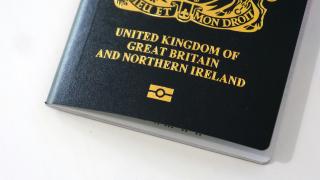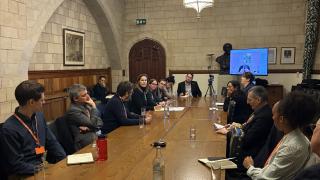
The Government's recent update to citizenship guidance to deny British citizenship based on method of arrival in the country deepens societal divisions and flies in the face of the UK’s international obligations. This policy, implemented without any scrutiny, impacts people who have been in the UK for years and does little to present alternatives for those taking treacherous routes.
Described by the Home Office as a ‘clarification’ to case worker guidance when assessing if an applicant for citizenship is of 'good character’, the new rules state: “Any person applying for citizenship from 10 February 2025, who previously entered the UK illegally will normally be refused, regardless of the time that has passed since the illegal entry took place.”
Article 31 of the 1951 UN Refugee Convention states that refugees should not be punished for entering a country illegally, provided they present themselves to authorities without delay and demonstrate "good cause" for their irregular entry. Immigration experts have stated that denial of citizenship for reason of method of arrival goes against this ‘non-penalisation clause’.
The United Nations High Commissioner for Refugees (UNHCR) issued important guidelines in September 2024 clarifying how Article 31 of the Refugee Convention prohibits states from imposing penalties on refugees on account of irregular entry or presence. UNHCR notes that the term "penalties" should be interpreted broadly to include any criminal or administrative measures that are punitive, discriminatory, retributive or deterrent in character.
"A penalty is prohibited under Article 31(1) when it is imposed on the refugee because of their irregular entry or presence, or the means and related actions whereby irregular entry or presence has occurred," the UNHCR guidance explains.
The Refugee Convention also calls on states to “make every effort to expediate naturalization proceedings”. The latest Home Office guidance risks locking refugees out of fully participating in society, with MP Stella Creasy saying that the change means “refugees would forever remain second class citizens”.
UNA-UK urges the UK government not to dismiss the fundamental protection for refugees outlined in the Refugee Convention, and to remember the UK minister Fergus Eckersley’s statement to the UN Security Council in September 2024, that: “All migrants and refugees must be treated with humanity and dignity”.
The UK must heed the recommendations of UNHCR UK and:
-
Restore access to asylum
-
Reform the asylum system
-
Scale up resettlement and other safe, regular pathways
-
Establish a coherent, locally driven refugee integration programme
-
Strengthen regional and international cooperation
At a time when international laws and standards that protect the most vulnerable are under attack, it is vital that the UK upholds its obligations and champions the system of refugee protection. Short term political interests cannot come at the expense of rights and dignity. The UK must stand up for those forced to flee war and persecution and develop practical and compassionate immigration policy that protects the right to asylum and ensures dignity and opportunity for refugees.
Read more:
- Read UNA-UK's response to the UK Government suspension of decision making in Syrian asylum cases
- Read UNA-UK's statement in response to the passing of the Rwanda Bill
- Read UNA-UK's statement in response to the Illegal Migration Bill
- See the UN Refugees Agency’s account of Asylum in the UK
- Read UNA-UK's statement on the Nationality and Borders Bill
Photo credit: Ethan Wilkinson on Unsplash.




